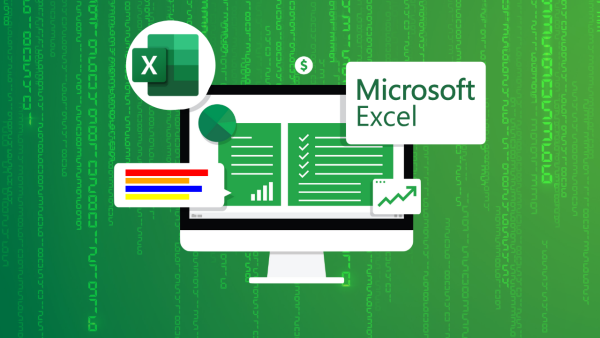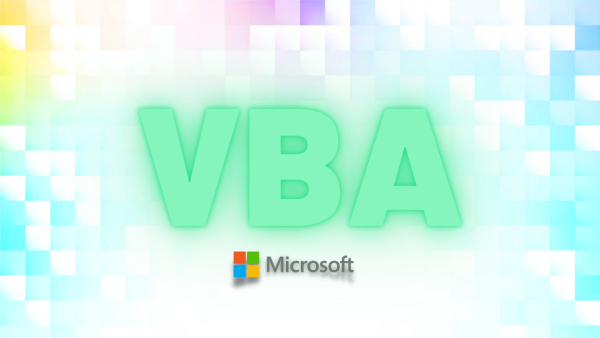Are you good with numbers and enjoy solving problems?
Do you like finding the reasons behind why things happen so that you can then take action?
And are you looking for a new, high-demand, high-paying career?
If you’ve answered yes to the above, then becoming a Business Intelligence Analyst might be the new career you’ve been looking for…
What is a Business Intelligence Analyst and what do they do?
Business intelligence is best described as the process of collecting and analyzing data to understand what is happening, and then making intelligent business decisions based on that analysis.
As you can guess, the BI analyst is the person who makes this all happen.
They take raw data and turn it into actionable information that helps companies make better business decisions (ex: increase revenue, lower costs, reduce churn, etc.).
The BI Analyst’s workflow generally consists of three phases:
- Gathering data from multiple sources, cleaning it, and then structuring and standardizing it for analysis
- Analyzing the data by generating relevant metrics and KPIs while identifying trends and outliers, to figure what is actually happening
- Presenting the findings in a way that a non-technical audience can understand (reports, dashboards, charts, “decks”, etc.)
For example
Lotteon is the leading online retailer in Korea, with 13 million customers a year, and 10 million visitors per day!

They started implementing BI to find out where they could improve their processes.
Their data told them they had a lot of cart abandonment (people added things to their cart but never completed the purchase).
They took this initial information and started to look at the customer experience. From self-analysis and customer feedback, they discovered that their checkout process was too long and there was some confusion around delivery windows.
A strategy was put into place to fix these things, the improvements were made, and Lotteon made an additional $10 million in sales in the first 12 months of implementing this solution.
No major fix or coding required. Just understanding why things were happening and taking action to improve.
Pretty cool right? As a BI analyst, you’re basically the Benoit Blanc for businesses which on its own, is pretty cool.

You're going to making companies all this extra money, but what's in it for you?
Top 5 reasons to become a Business Intelligence Analyst
#1. Money!
How much does a Business Intelligence Analyst earn? Well, according to ZipRecruiter, the average salary for a BI analyst in the US right now is over $87,000 per year.

Not too bad right? Especially when you see that some companies are offering $140,000 or more.
I even found one posting for $190,000 a year if you had 3 years of experience as a BI analyst in SaaS companies!

Erm, yes please!
It’s not just a great salary that makes this a good career to get into though.
#2. Play with the coolest and latest tech
Although a lot of companies are now seeing the value of BI, it wasn't always the case.
This meant that BI was mainly adopted by tech companies first, simply because they see the value in understanding data at scale.
And the cool thing about tech companies?
They have the best toys and tools, which means that BI Analysts will often get hands-on experience with cutting-edge tech, such as:
- Powerful visualization tools, including Power BI and Tableau
- Databases (of the SQL and NoSQL variety)
- Programming languages, such as Python and VBA
- And even self-service Data Science software like Alteryx
Not to mention possible deals or free stuff for any cool company that you work for.
Editor's note: I have a buddy who works in BI for Sony and got a Playstation PS5 for free, about 16 months before the public.
Does this mean you need a tech background to work in BI?
Nope!
Sure, it doesn’t hurt if you have some programming experience, but thanks to the wide range of skills needed in BI teams, it means that people with a business or operations background are more than welcome in Business Intelligence.
Even better, you'll likely have plenty of training opportunities once you’re there, regardless of your skill level, so if you do want to learn to code, you can.
Fun fact? BI teams and the professionals who work in them are highly valued by senior leadership, meaning funding for training is usually abundant.

#3. Develop a wide range of skills
Because the BI role covers technical, analytical, and soft skills, it means that you get to skill up across multiple areas that are all highly valuable in the tech world.
- You'll have opportunities to develop your communication and presentation skills in a BI Analyst role. That's because you'll have to explain your findings to decision-makers within your company
- You'll also develop relationship-building skills since BI professionals collaborate with colleagues at all levels and functions
- Analytical skills are super important too. BI pros don't just mindlessly turn out numbers; they need to understand those numbers and the data behind them. This understanding helps validate their findings and tell compelling stories to business leaders
- Lastly, knowledge of the business operations themselves is crucial. After all, it's Business Intelligence! It's hard to analyze and report findings on a business process without understanding it

#4. Multiple paths for career advancement
The great thing about all those skills that you'll develop is the dizzying array of career paths that open up because of them. (Which is a good thing!)
Love tech + programming?
If so, starting out as a Business Intelligence Analyst can be the perfect stepping stone into a role as a Business Intelligence Engineer.

These engineers focus on building and optimizing the technological processes that underpin the Business Intelligence workflow. This includes things such as extracting, transforming, and standardizing data.
Simply put?
They help set up the systems that capture all the data that the analyst uses.
Since you'll have experience using these systems, it’s a fairly easy transition into a Data Engineer role, as long as you take some time to learn and understand the technology required (which your company will likely pay for as I mentioned before).
Love data?
If analyzing data is your thing, Business Intelligence can be an excellent jump-off point for a career in Data Science and Predictive Analytics.

Many Data Scientists will tell you that they spend 80% of their time cleaning and transforming data, which is what you’ve already been doing as an analyst so far, so it’s another easy transition.
Want to lead a team?
Alternatively, you can take those soft skills that you picked up and move in a non-technical direction, such as a Project Manager or IT Business Analyst (i.e. someone who works with technical and non-technical teams).
This is a highly underrated role. Most people in tech are either good with code and tech or good with people, but those who can bridge the gap get paid handsomely for it.
At ZTM, we call this skill stacking.
#5. Job security!
The last reason (but certainly but least) I'll give you is simply the peace of mind that BI skills are not going away anytime soon.
In fact, you could say they are recession-proof. It's through the use of BI that companies can become more efficient and make better decisions which lead to higher revenue, lower costs and ultimately more profit.
Being able to not only understand data but also glean insights from it is necessary for a company's survival, which means they need and want you in good times and bad.
Add in the fact that BI Analysts develop business domain knowledge (i.e. deep, specific knowledge of the business operations they support), and this all adds up to making them far more difficult to replace than employees whose primary value is knowing certain technologies that aren't specific to a company.
Oh and an added bonus? Job demand and opportunities for BI analysts are trending up, so it’s clear to see that this is a great career to get into.
In fact, at the time of writing this, there were over 85,000 BI analyst positions available in the US alone.
How do you become a Business Intelligence Analyst?
Well first you need to get the right skills. Then you need to practice using those skills. Then it's just like getting hired in any other role.
If that sounds daunting, you can follow a step-by-step path from zero experience to getting hired as a BI Analyst.
If you're still me, you're thinking... so what skills do I need to know?
Sure, you can learn BI with Python and other tools, but believe it or not, you can also start learning what you need for this role almost immediately with zero programming experience.
All you need to learn is Microsoft Excel (it's much more powerful than just helping you with your budget and taxes 😉).
In fact, Excel is often the preferred tool to use, especially if you know how to harness it.

I know it sounds crazy but trust me on this.
Excel is THE tool for BI
Firstly, Excel is THE common denominator for working with data.
It's the glue that holds the business world together, and I can almost guarantee you that every company (no matter how big or small) uses Excel at all levels.
If the business world was a restaurant and businesses were the tables inside, Excel would be the salt and pepper on every table.
It’s easy to use
Compared to other tools or tech careers, learning Excel is remarkably easy and accessible.
Pick up a few tricks and suddenly your time to perform tasks is not only faster and easier, but you can often automate it.
It’s easy to access
Some companies may have access to more exotic Business Intelligence tools like Tableau, but no matter your role, you will almost always have Microsoft Excel installed on your work computer.
This means you can work with it right away, without the need for approval from IT or management. Even if your machine died, you could grab almost any other laptop and open Excel on it immediately.
Excel has more power than you realize
And of course, the final reason why you should start with Excel is because it actually has an industrial-strength suite of Business Intelligence tools pre-built into it already, you just didn’t know it!

Sure, it's not the sexiest looking UI but it doesn't need to be because that's not important.
What's really important is that these features are based on the same underlying technology as what you find in Microsoft's flagship Business Intelligence software, Power BI.
These features include:
- Power Query for fetching data from external sources and transforming it
- The Excel Data Model for forming relationships between datasets, like in a relational database
- DAX functions for analyzing structured data that comes out of Power Query
- Pivot Tables and Excel's wide range of charts and visualizations for presenting data
And that's not including all the other standard functionality Excel can bring to any data-related problem.
Where can you learn more about Excel's "Power" toolkit?
There are endless free tutorials and resources you can find online or on YouTube.
But it's easy to get lost and distracted and waste a lot of time learning things that aren't actually useful.
If you want to learn quickly and efficiently, come check out my Excel for Business Intelligence course.

Throughout the course, you'll use real datasets and real-world use cases to guide you through applying these technologies on the job, as well as plenty of opportunities to practice what you've learned with hands-on exercises and projects.
It's perfect for beginners and people with no prior programming experience.
You'll learn all of Excel's Business Intelligence features by building an end-to-end BI solution for a fictional surf shop.
Along the way, I'll show how to build an automated ETL (extract, transform, and load) process to fetch external data, how to use the DAX language to create dozens of powerful KPIs, and how to turn all that into beautiful, dynamic visualizations.
You don't need to learn to code. You don't need any further paid tools. You just need to sit down and do the work. Simple!
So don't wait to start your career as a Business Intelligence Analyst. Instead, open Excel, fetch some data, and build a Business Intelligence solution that will impress your boss.
You'll be presenting in the boardroom before you know it!








